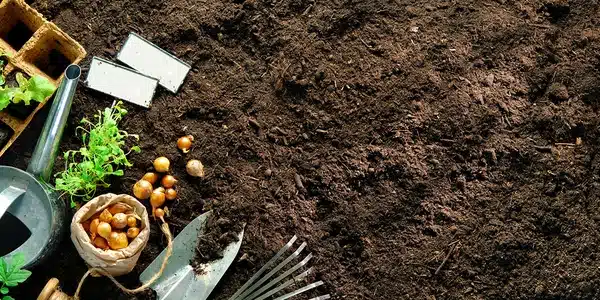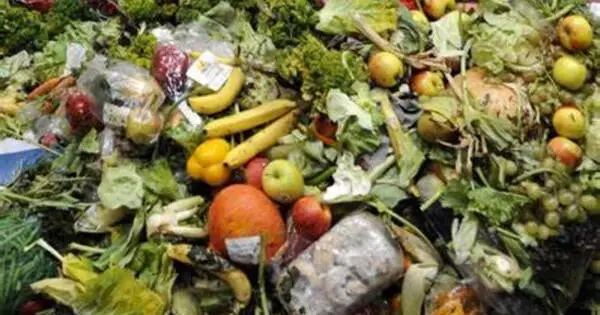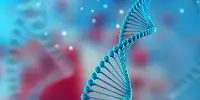Significant UN research has proposed methods to cut nitrogen pollution from agriculture and the food chain in Europe in half, including cutting meat and dairy consumption, fertiliser use, and food waste.
Nitrogen, which is essential for plant growth, can be found in animal waste and synthetic fertilizers used to increase agricultural yield. However, excessive and inefficient usage of this nutrient results in up to 80% of it leaking into the environment, largely in the form of toxic nitrogen: ammonia and nitrogen oxides, which are detrimental air pollutants; nitrous oxide, a potent greenhouse gas; and nitrate, which damages water quality.
The new report, Appetite for Change, has been produced by a group of researchers coordinated by the UK Centre for Ecology & Hydrology (UKCEH), the European Commission, Copenhagen Business School and the National Institute for Public Health and the Environment (RIVM) of The Netherlands.
Appetite for Change says inefficiencies in farms, retail, and wastewater practices mean that the nitrogen use efficiency of the food system in Europe is only 18%, leaving most of the remainder leaking into air, water, and soils.
Action does not begin and end at the farm gate; it requires a holistic approach involving not only farmers but policymakers, retailers, water companies and individuals. It is also not saying we should all become vegan.
Professor Mark Sutton
The report puts forward a recipe to halve these overall losses, and its ‘ingredients’ include:
- Cutting average European meat and dairy consumption in half and replacing it with more plant-based diets will reduce pollution and improve human health. (The current annual meat intake average is 70kg.)
- More efficient fertilizer application and manure storage
- Reduced food waste by retailers and customers, hence reducing the amount that must be produced
- Better wastewater treatment would collect nitrogen from sewage, lowering emissions and allowing recycled nutrients to be used on crops
- Aid the transition to more balanced diets by, for example, giving financial incentives for foods with low environmental effect and adopting public sector catering contracts that include these sustainable food options
- A coherent combination of policies addressing food production and consumption to better support a transition towards sustainable systems
- Farmers, industry, government and consumers need to be mobilised and agree to work together to reduce nitrogen losses throughout the food system, for example through setting up governance platforms at national, regional and local levels.
Professor Mark Sutton of UKCEH, one of the editors of Appetite for Change, explains: “Action does not begin and end at the farm gate; it requires a holistic approach involving not only farmers but policymakers, retailers, water companies, and individuals. It is also not saying we should all become vegan. Our analysis finds that a broad package of actions including a demitarian approach (halving meat and dairy consumption) scored most highly in looking to halve nitrogen waste by 2030.”

The research focuses on the UN Colombo Declaration’s goal of halving nitrogen waste by 2030, which was extended by the Kunming-Montreal Global Biodiversity Framework.
The average European consumes far more protein than the World Health Organization recommends. According to the analysis, a balanced diet with less meat and dairy would improve nutrition and make people healthier, lowering the demand for health care.
Appetite for Change expands on their 2014 Nitrogen on the Table research, which identified the issue, claiming that the European food sector, particularly cattle, responsible for 80% of the continent’s nitrogen emissions.
Aside from not emitting direct emissions from cattle, growing vegetables and other plant produce is often more efficient than livestock agriculture, necessitating less area and fertilisers.
Some 40% of cropland in Europe supplies food for animals, but there is also a high reliance on feed imports, such as oil seeds and fertilizers. Farmers’ nitrogen fertilizer expenditures have risen in the last two years, owing mostly to the Ukraine conflict, emphasizing the need to prevent inefficient nitrogen resource losses.
Dr Adrian Leip, an environmental scientist at the European Commission, who is lead editor of the report, comments: “The unprecedented rise of energy, fertiliser and food prices since 2021 underlines the need to address the vulnerability of the current food system. Plant-based diets require less land and fertilisers, reduce energy use and increase our resilience to the current multi-crises: food, energy, climate.
“Freeing up land to restore habitats would help tackle the climate and biodiversity crises.”
For Appetite for Change, the scientists investigated 144 scenarios, involving varying reductions in meat and dairy consumption, agricultural and retail practices, and investment in wastewater treatment. They looked at the benefits or trade-offs for the environment and health, severity and costs of possible measures.
Taking into account all of the possibilities, the researchers determined that a balanced set of interventions, including halving meat and dairy intake (a “demitarian” approach) combined with enhanced farm and food chain management could achieve a 49% reduction in nitrogen losses while providing the maximum net social benefit.
The report discovered that a plant-based diet combined with ambitious technical measures could reduce nitrogen waste by 84%; however, when the environmental benefits were offset against the stringency of actions required to achieve this, this scenario did not offer net societal benefit.
















